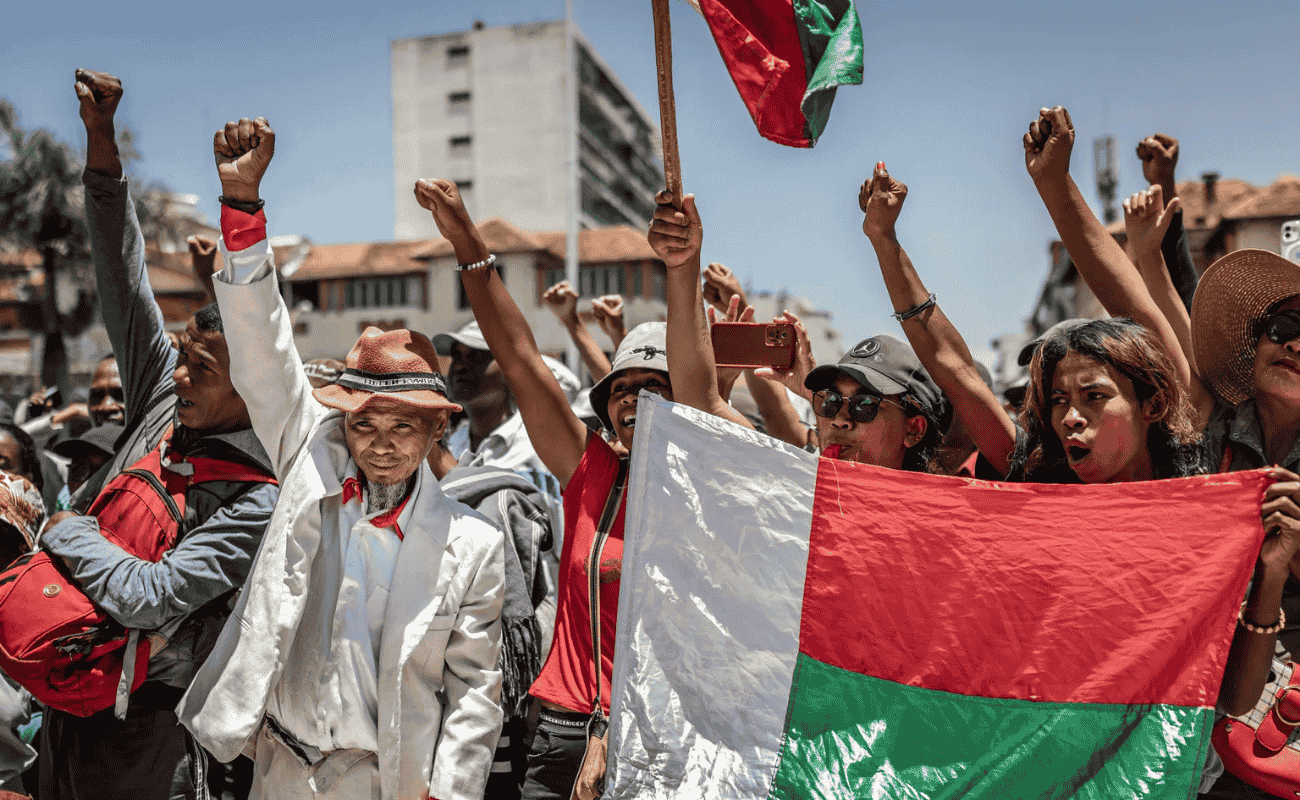
By Assam Francis
African politics has become one to reckon with over the past two decades. The continent has evolved from being merely an attraction for its abundant resources to emerging as a geopolitical heavyweight, commanding attention from global powers competing for influence and strategic partnerships. Yet beneath this newfound prominence lies a troubling paradox: with Africa’s rising geopolitical significance has come a generation deeply invested and deeply disillusioned in the political process.
Across the continent, young Africans represent over 60% of the population, constituting the world’s youngest demographic. These youth have inherited nations grappling with high levels of underdevelopment, endemic poverty, chronic unemployment, and failing public infrastructure that denies them basic services like electricity and clean water. While 72% of African youth participated in recent elections, their political engagement increasingly manifests through protests rather than traditional civic channels, signaling profound dissatisfaction with existing governance structures.
Madagascar’s October 2025 military takeover, sparked by Gen Z-led demonstrations against service delivery failures, may be the starkest warning yet: this is not an isolated incident, but potentially the beginning of a new chapter in Africa’s political fragility. As the eighth successful coup since 2020, Madagascar reveals how youth frustration, institutional weakness, and governance failures are converging to create a continental crisis that threatens to unravel decades of democratic progress.
A Crisis Spreading Across Africa
The warning signs appeared across Africa before Madagascar’s coup. In June 2024, Kenya’s Gen Z protesters forced President William Ruto to withdraw his Finance Bill and sack his entire cabinet after demonstrations that killed at least 22 people when protesters stormed Parliament. Using TikTok, Instagram, and X, young Kenyans organized decentralized mass action demanding accountability. Weeks later, Nigeria erupted in #EndBadGovernance protests (August 1-10, 2024) as thousands demonstrated against the cost-of-living crisis, with organizers now facing treason charges. Similar youth uprisings shook Morocco, Uganda, Ghana, Mozambique, and South Africa throughout 2024, creating what observers termed the 2024 Youth Africa Uprising.
These protests forced temporary concessions but failed to fix the real problems: corruption, unemployment exceeding 36%, failing services, and political elites who ignored young people’s concerns. This failure created a dangerous opening that military forces have been quick to exploit.
A Looming Storm: Political Fragility in an Era of Youth Explosion
Madagascar’s October 2025 coup matters less for what happened there and more for what it shows about Africa’s growing political weakness. In the past five years, the continent has seen nine successful military takeovers, representing a jump compared to the previous two decades. Madagascar’s coup shows that this instability is no longer limited to the conflict-torn Sahel region but is now spreading to areas that have been democratically stable for years.
This breakdown comes at the worst possible time. Africa is experiencing a massive population boom that will either lift the continent up or drag it into crisis. By 2050, Africa’s working-age population will grow to 1.56 billion people, accounting for 85% of the world’s labor force growth. Young people aged 15-24 will reach 500 million by 2080. Right now, 70% of sub-Saharan Africa is under age 30, making it the world’s youngest region.
But African governments are failing badly at creating opportunities for these millions of young people. Youth unemployment across the continent sits between 36-62% in different countries, which is three to four times higher than adult unemployment. In South Africa, 62.4% of youth aged 15-24 have no jobs. Across Africa, over 45% of young people aged 15-34 are not working, in school, or in training.
The result of doing nothing is clear and frightening. Youth protests will continue across the region, and conflict risks will stay high. The pattern repeats: civilian governments fail to deliver services, young people protest, security forces kill protesters, and military officers take advantage of the chaos to seize power. Recent examples in Gabon and Mali show how military rulers tighten their grip instead of returning to democracy.
If Madagascar is truly only the beginning, Africa faces a future where its greatest strength (its youth) becomes its biggest threat to stability. With the population expected to hit 2.5 billion by 2050, the continent risks a cycle where angry youth uprisings lead to military takeovers, which then lead to more authoritarianism and more anger. Unless African leaders urgently fix the real problems (unemployment, corruption, poor services, and political exclusion), Madagascar’s coup may mark the moment when Africa’s democratic progress began falling apart.
The Way Forward
Africa’s leaders must act urgently before Madagascar’s coup becomes a template for the future. The continent cannot afford to waste its demographic dividend when 10-12 million young people enter the workforce annually but only three million formal jobs are created. The path to stability requires addressing the root causes driving youth frustration.
First, governments must align education with market needs through vocational training, apprenticeships, and digital skills programs that prepare young people for actual jobs, not theoretical ones. Countries with workplace experience programs show youth are four times more likely to find employment.
Second, African leaders must support youth entrepreneurship through easier access to capital, mentorship programs, and simplified business registration. The African Continental Free Trade Area (AfCFTA) offers opportunities for young entrepreneurs to access markets beyond their borders.
Third, good governance is non-negotiable. Transparent institutions, reduced corruption, and leaders who respect constitutional term limits will restore youth confidence in democratic systems. Regional bodies like the AU and ECOWAS must enforce consequences for military takeovers rather than issue hollow condemnations.
Without these reforms, Madagascar’s coup signals not an isolated incident but the beginning of Africa’s democratic unraveling, powered by millions of frustrated young people who see military rule as their only hope for change.
